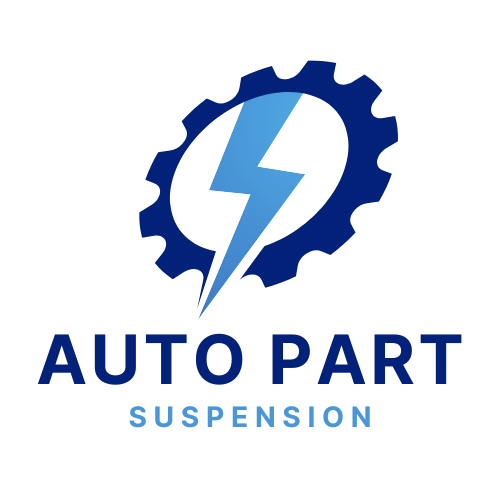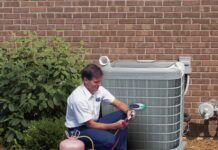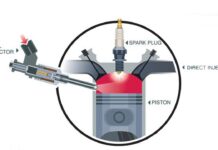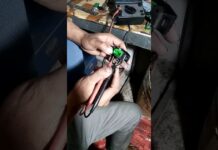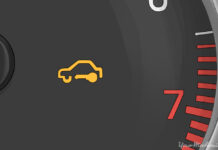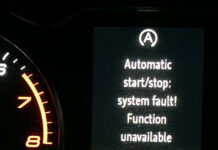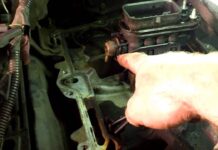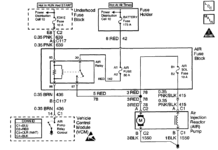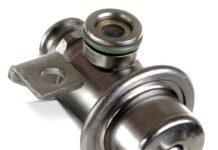Why does my engine stop? What is the cause of the engine stopping? The possible causes of stopped cars and the solutions. …..
It can be frustrating to have your engine constantly stall. Sometimes, an engine will suddenly stop working while you are driving. These conditions are often caused by air, fuel and ignition. They may also be more common when starting cold engines.
“Engine stops immediately after starting when it gets cold”
A stalling problem is usually caused by the engine not receiving enough fuel/air. It is important to use a rich fuel mixture when starting a cold engine.
Let’s take a look at possible causes of your problem.
Leakage of Engine Air
You should inspect the air hoses for any splits or looseness. Also, check for leaks around the EGR and PCV valves.
A dirty or defective air flow sensor
This sensor sends information to the ECU about the amount air being absorbed by the engine. An unclean, lubricated, and thus clogged air flow sensor will not be able to do its job. Airflow changes will slow down the sensor’s ability to respond. This can cause the fuel/air mixture to become less efficient. The problem can be fixed by cleaning the sensor with an aerosol electronic cleaner.
Defective Idle Speed Sensor
Injection vehicles are controlled by an electronic control unit that responds to the signals of the sensors. When the throttle is closed, the idle engine allows air into the intake manifold. If the throttle body or idle motor is damaged, the engine may not get enough air to idle properly and will stall.
Defective Temperature Sensor (Water Temperature Sensor)
The fuel mixture could also be affected if the water temperature sensor fails and notifies the ECU that it is colder than normal. The engine will run warm if it reads lower than normal. The engine will then send more fuel into the combustion chamber. This will cause the engine to continue running, but it will not stop. After heating up, however, fuel consumption may increase and idling problems could occur. If the sensor shows a higher temperature than normal, the ECU may reduce fuel delivery. This can cause the engine to stall. It is necessary to replace the defective sensor.
Defective Air Temperature Sensor
The sensor sends the ECU temperature data from the intake manifold. For the ECU to adjust the fuel/air mixture ratio, it needs accurate data. As with a bad water temperature sensor, a bad air temperature sensor could spoil the fuel mixture and lead to stalling problems.
Defective MAP Sensor (Absolute Pressure Sensor)
This sensor is the ECU’s most critical sensor to detect engine load. The sensor measures the vacuum in the intake manifold. It then generates a signal that is proportional to the vacuum. This information is used to adjust the fuel injection and ignition advance by the engine control module (ECU). The ECU could send too much fuel if the MAP sensor fails. This could cause engine to stall.
Low Engine Pressure
The piston, ring, and cylinders could be worn if your vehicle has been driven for a long time. The engine may not start if the compression is too low or the valves are damaged. You should test the engine compression. This may indicate that the engine needs to be overhauled.
Spark Plugs – Finished or Contaminated
Engine stalling is usually caused by ignition problems. An engine that is not warm enough or running slowly can stall if it has a minor misfire. If spark plugs or spark plug wires have not been changed for a while, they will not ignite properly. Poor ignition can cause damage to the ignition coil and crankshaft position sensor.
Bad Fuel
A mixture of gasoline containing more than 10% alcohol and water will cause the engine to stall. This could be the case if you notice that your engine is stalling after you have used the last fuel. You can drain the tank, then refill at another gas station. You can use the engine as normal until it is full.
“Engine Idle at Traffic Lights”
Defective A/C Compressor
Electric Overload on the Charging System
“Engine stops when driving”
These problems usually arise from the ignition system. Problems like this are usually caused by a bad crankshaft position sensor, or an ignition coil (if there is only one coil). The engine may stop abruptly if the ignition switch loses contact.
Open the hood to check for sparks at spark plugs if you experience this problem. One person will start the starter while the other will remove the spark plugs by touching the spark plug tip to engine block and checking for ignition. You should not touch any ignition wires with your fingers. The ignition system is responsible if you don’t see any sparks when you crank the engine.
A drop in fuel pressure could cause an engine to stop starting if it is not ignited. The fuel pump usually fails without warning. The engine will not start in this situation. You must tow the vehicle. You can test the fuel pump by listening to the sound coming from the underside of the rear seat. If you don’t hear the sound, your fuel pump may not be working. The pump may fail due to a blown fuse and a bad relay. There is a high chance that the pump has failed after a long journey.
ECU relays may also be responsible for the problem. The ECU shuts off the fuel injectors, and the ignition is stopped if one of the relays fails. To determine if this is possible, you must replace the ECU power switches. If the problem continues, it is worth checking the electronic system.
Other possibilities include low system voltages, loss of voltage or overcharging. To operate, the ECU and other control modules need 12 volts of constant voltage. The ECU will temporarily shut down injectors and ignition circuits if the supply voltage falls below 9 volts. This happens when there is a short circuit in both the charging and electrical system. These faults can be difficult to detect and require special tools to quickly capture data. A skilled electrician can identify the problem and repair it.
